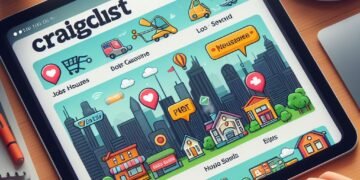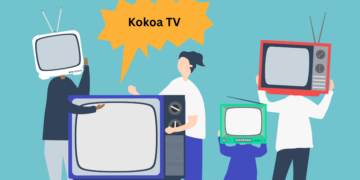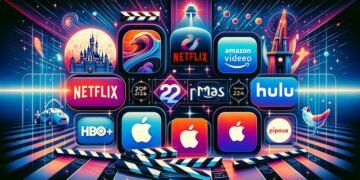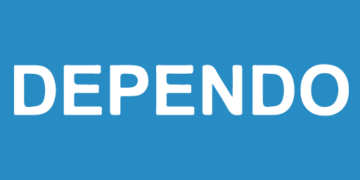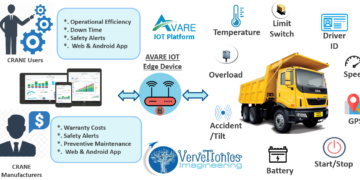Since mobile apps have penetrated the healthcare space and facilitated the rapid transformation of medical care and treatment, mobile healthcare or mHealth solutions became now an everyday reality. For layman’s understanding, mHealth encompasses the scope of availing healthcare using mobile devices. But there are more aspects to this than just using mobility.
mHealth solution refers to a wide array of apps that allow patients to track, remain engaged or make an analysis of their health data by using their mobile devices. Almost all major researches in the field indicate that all healthcare practitioners and organisations either already integrated or are planning to integrate mobile apps into their healthcare services.
While the scope of mHealth apps is continuously expanding and benefitting millions with timely access to healthcare and medical services, it is important to assess the major differences that mHealth solutions are making fir the entire medical fraternity and patients in general.
mHealth apps are helping in the following aspects.
- Offering precise tech support for clinical diagnosis and in the decision making process.
- Enhancing clinical results from the established pathways of treatment by tracking changes of behaviour and patient adherence as well as compliance with treatment processes.
- mHealth apps are also working as standalone solutions for digital therapeutics.
- mHealth solutions help provide and spread information and education corresponding to different diseases and public health threats.
- mHealth allows better care coordination among the caregivers, doctors and medical staff.
- mHealth solutions are processing medical data in a precise and well-organised manner to help with medical researches.
Key advantages and challenges of mobility in health care
As healthcare service providers, government agencies and individuals experience increasing demand for higher functional efficiency, mHealth solutions are being embraced as the most crucial efficiency-boosting tools.
mHealth solutions are primarily facilitating a highly interconnected and wireless system infrastructure that can be accessed anywhere irrespective of the location and across all points of care interfaces. Secondly, mHealth solutions enable better care coordination as the physicians can now instantly share diagnostic images across departments. Such close collaboration reduces the chances of errors. Apart from that, many paperwork can be avoided, and all caregivers and medical professionals can be in sync regarding the processes.
On the other hand, point-of-care tools synced with mobile apps can safeguard both patients and medical professionals’ interests by recording real-time data that can be accessed later for verification and claim settlement.
In another front, mHealth solutions can reduce duplication of tasks and facilitate quick and streamlined communication through virtual meetings. Besides reducing the cost burden, this can also facilitate faster treatment collaboration in high-risk medical instances in which saving time can save lives.
Thanks to the mHealth solutions, larger data pools can be created to facilitate closer collaboration and more efficiently driven teamwork. Professional medical equipment development gets a transparent boost thanks to instantaneous delivery of research data, raw medical data, training materials and other medical updates.
There are several challenges as well that mHealth solutions face. These challenges range from data storage and data management, network availability, network maintenance, device and network compatibility to interoperability.
Lastly, the biggest challenge is probably data security and data privacy. There are still concerns corresponding to permission control, maintaining data anonymity and securing data confidentiality.
There is also a big challenge corresponding to maintaining infrastructure integrity. There is a big challenge in the organisational level corresponding to the acceptance and resistance from the employees regarding the mHealth driven changes.
In Ireland, healthcare service providers and patients are increasingly becoming conversant with mHealth apps. No wonder, the companies engaged in Android or iPhone app development Ireland, now produce several leading apps spearheading the mHealth innovations.
How can mHealth help the patients?
Apart from all the advantages that we mentioned so far, mHealth in a multitude of ways is helping to improve patient care. Patients staying in the receiving end of the healthcare funnel are direct beneficiaries of mHealth solutions. Here we mention the key advantages of mHealth for patients.
- Patients get real-time health updates thanks to mHealth apps.
- Patients need very rare and infrequent in-person appointments with doctors and caregivers. Instead, most of their medical queries and consultations can be carried out over the phone.
- The caregivers and the patients’ relatives can stay updated on the patient’s health conditions and warning signs in real-time.
- The mHealth telemedicine apps will help the medical practitioners to carry out quick virtual checkups of individual severe patients deserving close monitoring.
- Since most people tend to browse their smartphones now and then, they can keep a close watch on their health metrics right through their smartphones.
- Thanks to real-time monitoring of health metrics and key parameters, mHealth apps can produce a more comprehensive and detailed analysis of patients’ health condition without needing expert medical diagnosis.
- mHealth apps can boost patient engagement to the optimum level. Thanks to the mHealth apps, patients can easily keep track and monitor doctors’ orders all through the day.
- A mHealth app can help patients manage their diet, keep watch on body weight and blood pressure, monitor sleep condition and take the medication in time.
- Instead of following the bland physical prescriptions and monotonous instructions provided with papers, patients using mHealth apps more easily engage and find mobile health apps more entertaining.
- Another significant advantage of mHealth apps is increased efficiency of patient treatment. Thanks to more streamlined information, real-time patient monitoring and enhanced patient engagement, doctors and medical professionals can make more accurate and timely treatment decisions resulting in less risk and better outcomes.
- mHealth also helps improve patient-to-doctor relationships as accessibility to care, and information becomes easier for patients and doctors.
- Finally, mHealth apps have found to play a huge role in improving the quality of life.
Conclusion
Offering so many benefits for both healthcare fraternity and the patients mHealth apps and solutions are quite likely to set the trend for the future of healthcare and treatment. Obviously, in the beginning, integrating mHealth solutions can be a bit challenging, but the huge advantages are worth thus pain.









